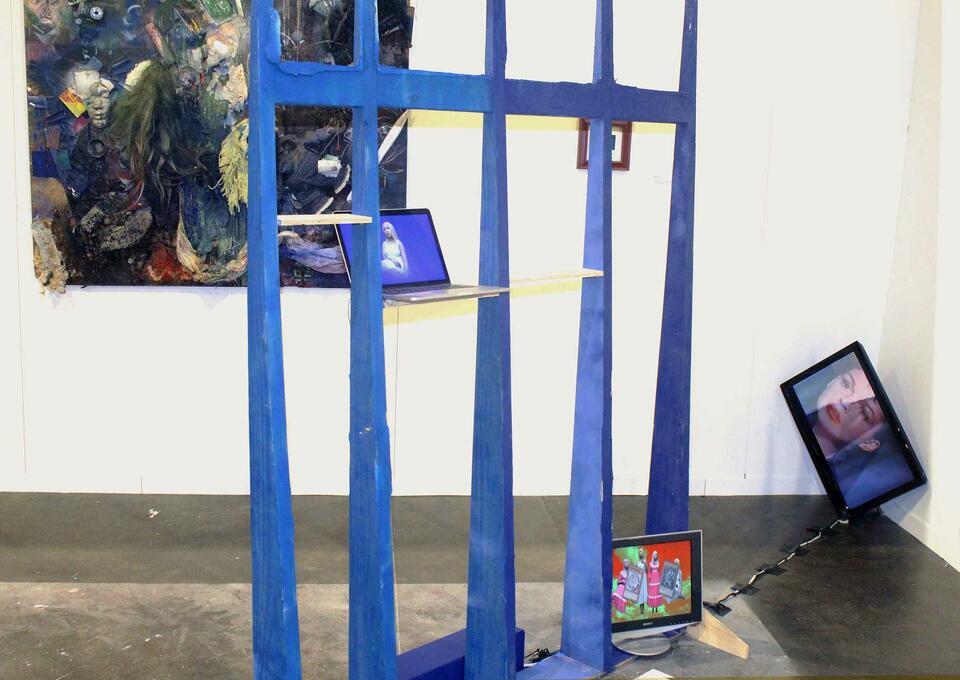Abigail Mathieson
"Little Old Wales":
Expressions of Nationalism, Language and Pride in Welsh Football
Abby Mathieson is an art historian, researcher, and photographer studying the relationship between material culture and identity. She received her BA in Art History with a minor in French from Colorado State University where she studied the influence of Romanian artists in early 20th century Modernism. She also worked at the Gregory Allicar Museum of Art and as a social media photographer for CSU Athletics where she ran the men's basketball Instagram account. At RISD, Abby received her MA in Global Arts and Cultures, studying how Welsh football culture influences national identity and Welsh independence movements. After graduating, she has been aiding in the publication of the RISD Oral History Project and digitized recordings from the Visiting Photographers' Lecture Series for the RISD Archives.
In 2022, after the Cymru national football team qualified for their first World Cup since 1958, captain Aaron Ramsey told Sky Sports in a post-match interview “unbelievable. Little Old Wales in a World Cup, eh? To get to three major tournaments now, to top it off with a World Cup. It’s something else.” The phrase encapsulates much of what sports mean to a nation like Wales, a smaller nation competing on a global scale as massive as the World Cup for the first time in over sixty years. The World Cup is one of, if not the most watched sporting event in the world, becoming a stage to highlight a variety of football cultures globally while also providing a space for fans from around the world to connect with each other and their national teams. Fans express their allegiances to their clubs in a variety of ways such as their utilisation of material culture, like flags, jerseys, and hats, or their singing of songs, chants, and anthems. These expressions are cultural ones, reflecting national identity and representing complex national histories, especially for nations with histories of colonisation. For Wales, a nation formerly colonised by England in the thirteenth century and now a part of the United Kingdom, football provides a space to highlight national pride and define national identity as separate from England and Britain. It also provides a space of visibility for prideful, smaller nations such as Wales to establish themselves globally.
Image
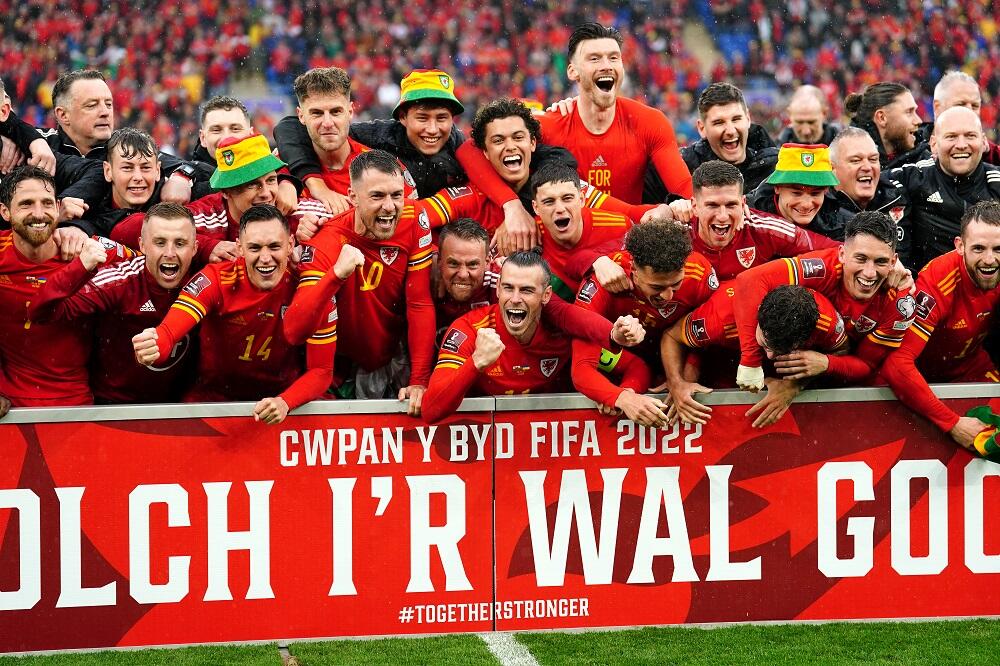
The Cymru national football team celebrate qualifying for the 2022 World Cup in front of a banner reading "thank you to the Red Wall" in Welsh. Photo by David Davies for PA Images. Posted 28 October 2022.
Football manifests both shared events and symbols, bringing thousands of people together who may not know each other but instantly feel a sense of togetherness the moment they put on their jersey or begin their walk, like a pilgrimage, to the stadium. The game itself becomes like a performance that both teams and fans participate in. Due to their relationship with many different people throughout a country, national teams best represent the idea of a national community to many people. The Cymru national football team’s motto both calls attention to the importance of togetherness in sport and national communities along with the importance of the Welsh language to Welsh culture and identity. The motto, “Gorau Chwarae Cyd Chwarae”, roughly translates from Welsh to “team play is the best play.” [...] When a fan or a player puts on a Cymru jersey, with its motto and its symbols, they instantly feel connected to the larger community of their nation. The shirt will be easily recognisable by others in their community, strengthening that bond and that feeling of togetherness.
Image
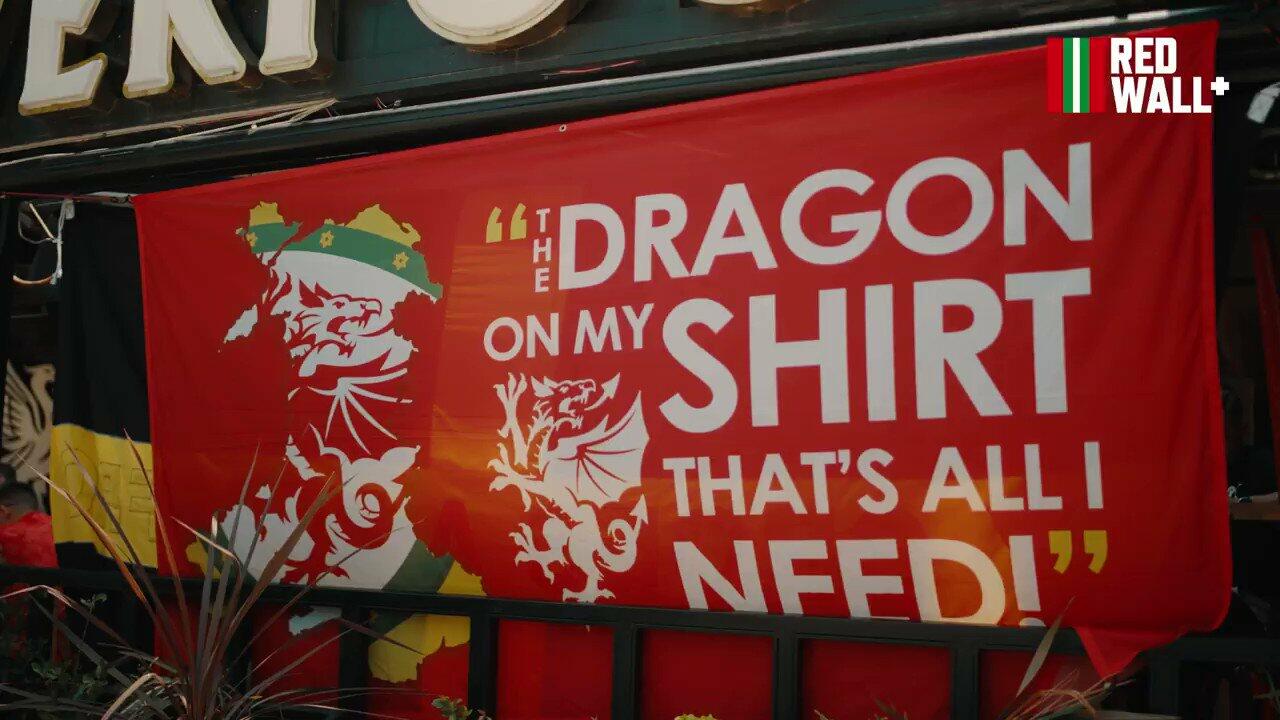
Screenshot of a flag reading “the dragon on my shirt that’s all I need” from a video by @Cymru on Twitter captioned “Wales away, I like it”. Posted 19 June 2023.
The combination of building national identity in Celtic countries such as Wales and their historically oppressive relationships with England culminates through the phrase “WELSH NOT BRITISH,” a phrase seen on flags and scarves at matches for the Cymru national football team. The Football Association of Wales even focused on one of these scarves in a clip during their music video of Dafydd Iwan’s “Yma o Hyd,” a song very important to Welsh identity, language, and now football. [...] All of these moments remain significant in contemporary Wales and are important in understanding the current political situation in the country, its relationship to England, and how that relationship is expressed through football.
Image
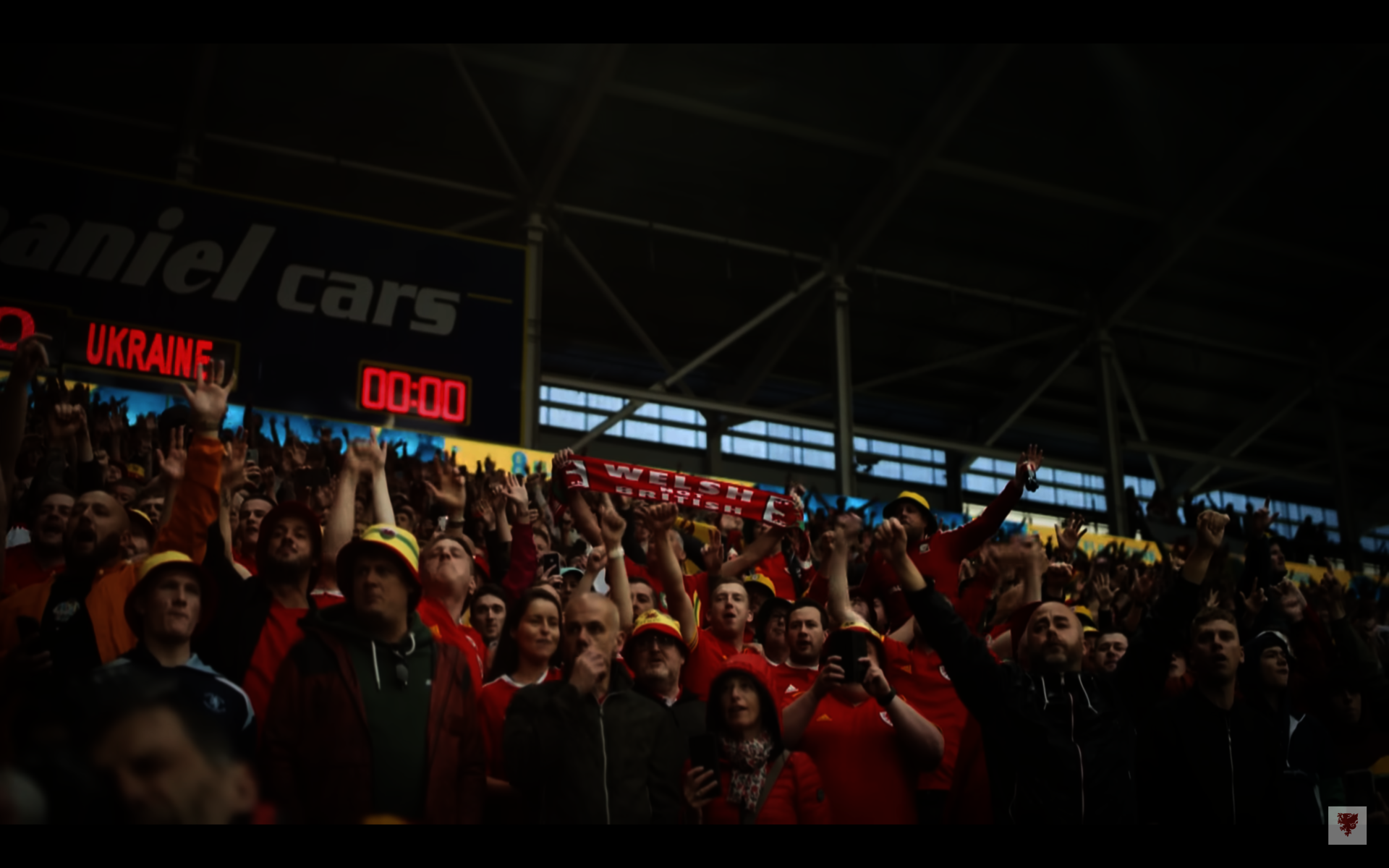
Screenshot of a Cymru fan holding a scarf reading “WELSH NOT BRITISH” from a video by FA Wales on YouTube titled “YMA O HYD - DAFYDD IWAN x AR LOG x THE RED WALL (OFFICIAL CYMRU WORLD CUP 2022 SONG)”. Posted 7 November 2022.
Monuments, memories, and protests all become symbols of national identity which can promote a sense of community, or a sense of political interest through nationalist movements for Welsh independence. When football teams, like the Cymru national team or Wrexham AFC, promote these symbols to their players and supporters, they are bringing memories and movements into a contemporary context and informing the public about their importance. This relationship goes both ways, the general public and supporters protesting events they find important and embedding them into their sporting community. In many cases, these events highlight the relationship Wales has had with their neighbour, England, in ways which are both contemporary and historical, and can lead to greater support for Welsh independence.
Image
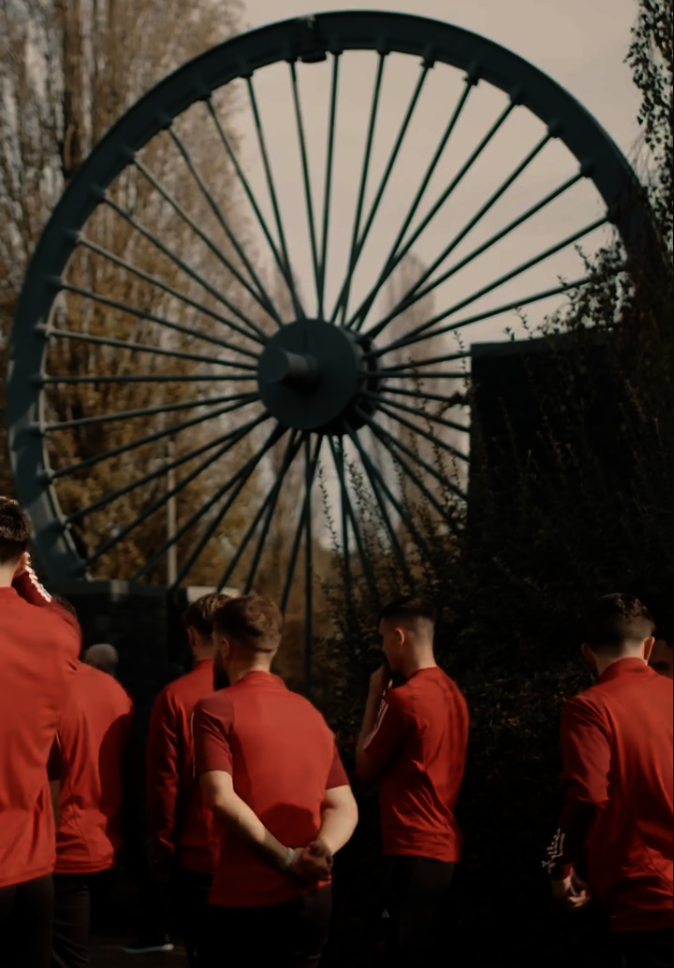
Screenshot of Cymru players standing in front of the Gresford Disaster Memorial from an Instagram reel by @fawales captioned “Cofio Gresford.” Posted 9 October 2023.
When describing what it means for his country to qualify for the World Cup, Tomi Caws told Ryan March on the Alternative Wales podcast that with “a game like football and this Wales team, [where] people can see what it means to the players to be Welsh… I just think it’s going to have a great effect on all of us as a nation.” Rhodri Davies then echoed these sentiments by saying “I think it just enables confidence in people, that you can be proud to be Welsh.” This idea of pride has popped up in multiple quotes. As a small nation often compared to or overshadowed by England in a global context, Wales had to fight for their status as a country and for their national identity. Professor Martin Johnes of Swansea University believes sport is one of the reasons Wales exists. He explained that “in that team of eleven players Wales became real.” When discussing Gareth Bale’s successful career, Rhodri Davies echoed these sentiments by stating that “it makes such a big difference because we’re a proud country. A country within our own right.” If England, Scotland, and Wales were not the first three established national teams in the world and if these countries were not the founders of football, it is very possible that there would be a singular national team for Great Britain. This is the case in the Olympics, which was established in France. Therefore sports like football and rugby, where Cymru have their own national team, become important forms of national expression.
Image
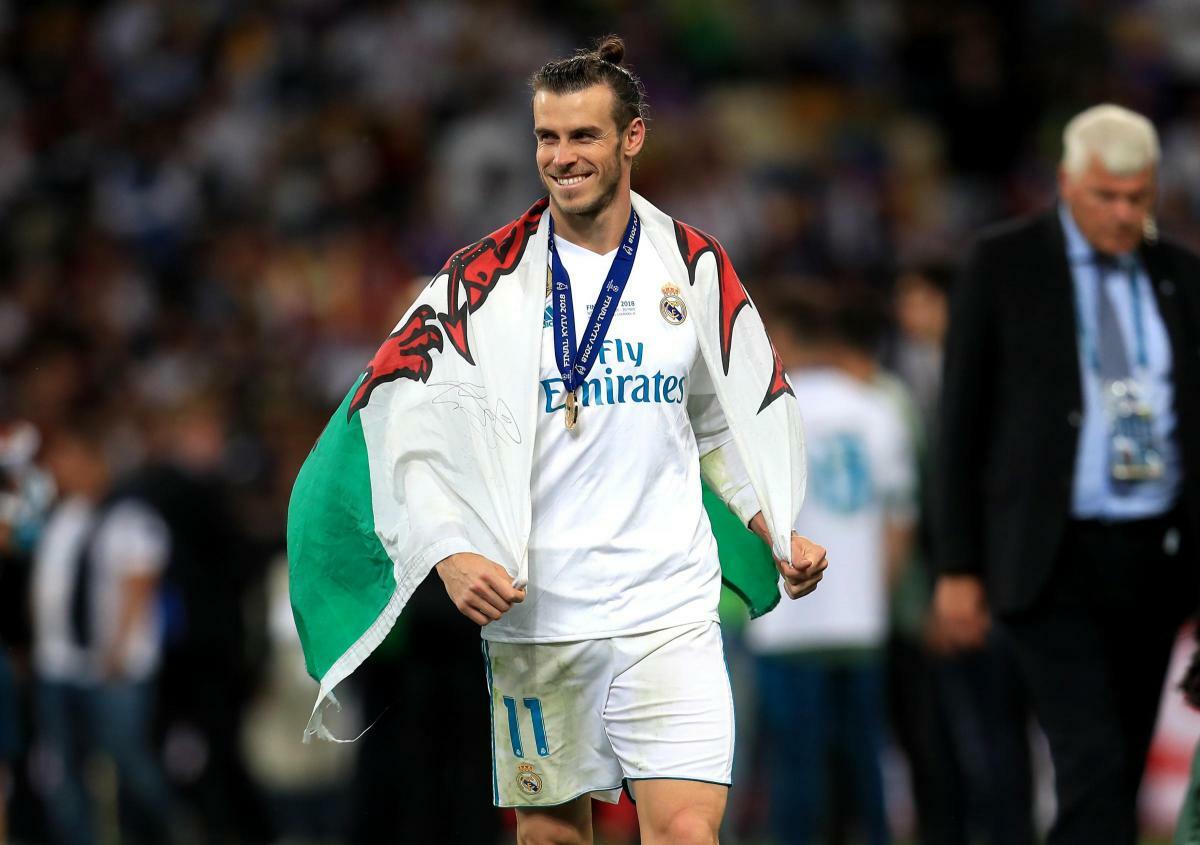
Photograph of Gareth Bale celebrating winning the Champions League Final with club Real Madrid. Photograph posted by Daily Echo on 19 September 2020.
Material culture like the bucket hat or the Cymru jersey are easily recognisable, creating that sense of an “imagined community” presented by Benedict Anderson and unifying a nation. The appearance of flags and scarves at matches with phrases such as “WELSH NOT BRITISH,” or with references to the banner of Owain Glyndŵr, emphasise the importance of national histories and the role these histories play in bringing together communities and the nation. Along with this, they signify a growing movement towards Welsh independence presented by some football fans, like the Welsh Football Fans For Independence fan group. Welsh symbols become tied to clubs as well through badges, connecting these clubs to their community histories and the shared identity of the nation.
Image
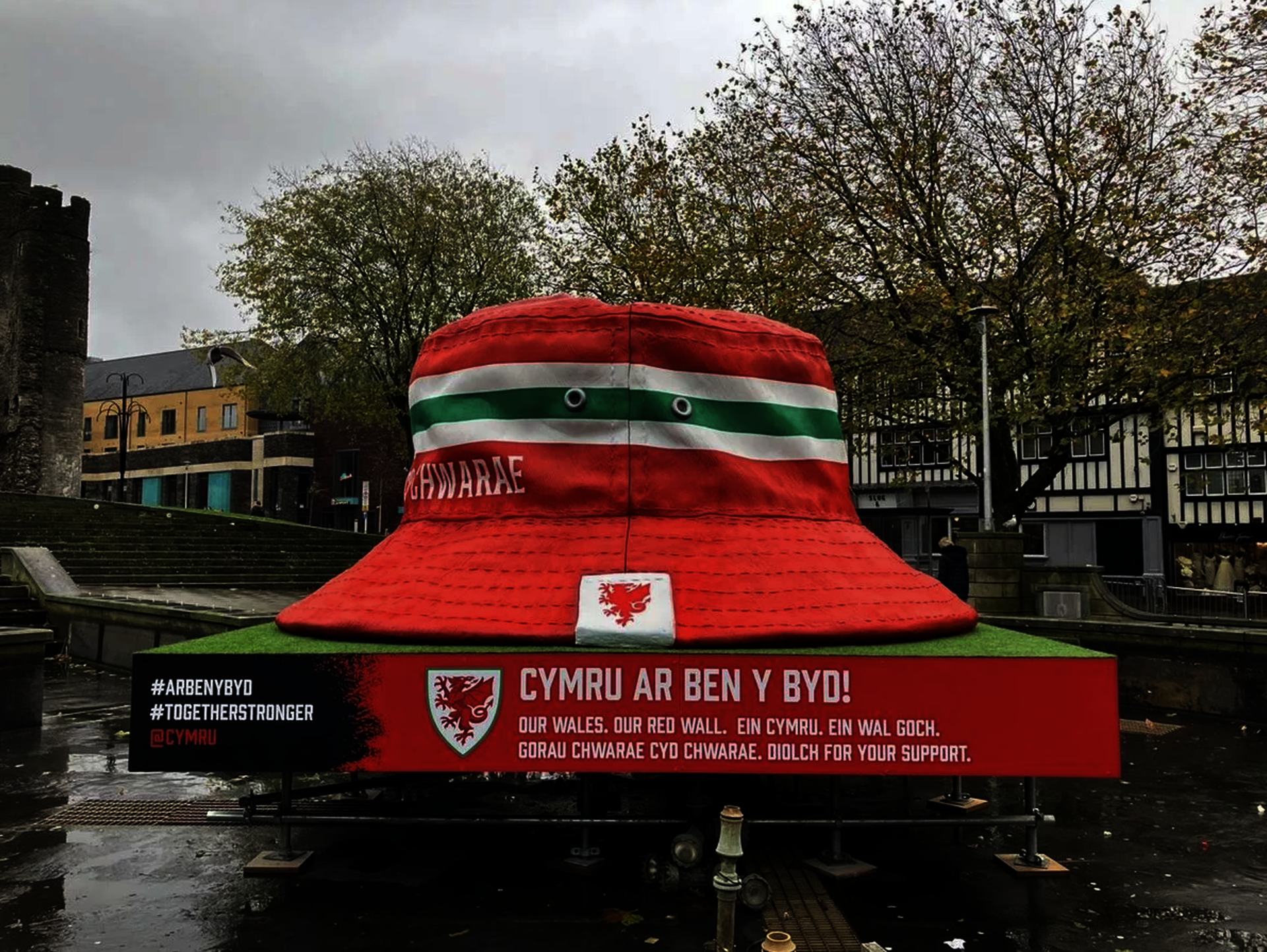
Photograph of a giant bucket hat sculpture in Swansea's city centre in South Wales. Photograph by Katie Hoggan for WalesOnline posted on 16 November 2022.
On 5 July 2022, Cymru beat Ukraine 1-0 and qualified for the 2022 FIFA World Cup, the nation’s first World Cup qualification since 1958. Before the match, Welsh singer and nationalist politician Dafydd Iwan was invited to give what ended up being an incredibly emotional performance of his 1983 song, “Yma o Hyd.” The song had gained traction amongst Cymru supporters and players and would eventually be named the official World Cup 2022 song for the national football team. The song is written entirely in the Welsh language, its title translating to “Still Here” and the lyrics of its chorus being “er gwaetha pawb a phopeth, ry'n ni yma o hyd” (“in spite of everyone and everything, we are still here”). The song references the oppression Wales and the Welsh language have faced throughout history under the British government, emphasising Cymru’s strength and persistence as “still here.” By singing in Welsh, Iwan shows that the Welsh language is a contemporary one, also “still here” after everything, along with acknowledging the importance of continuing to use and interact with the language. Iwan himself participated in a variety of pro-Cymraeg protests, some of which landed him in jail for acts such as vandalising English-only road signs. Iwan performed the song in front of Y Wal Goch, in the pouring rain, while tears streamed down his face. 33,000 Cymru fans sang with him in a sold out Cardiff City Stadium.
Image
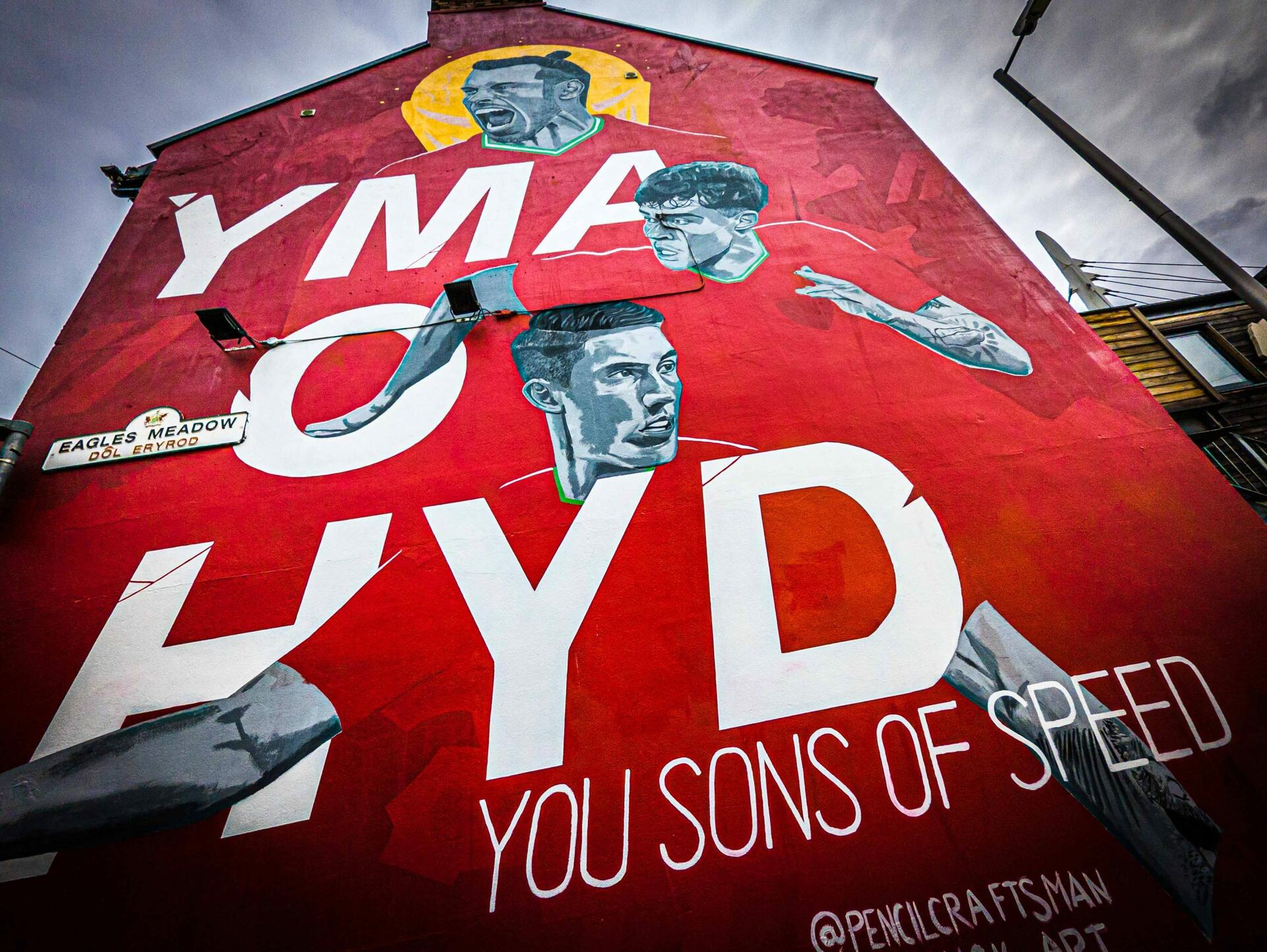
Mural painted by Liam Stokes-Massey on the Fat Boar Restaurant in Wrexham reading “Yma o Hyd You Sons of Speed” from Wrexham Council News. Posted 26 May 2023.
Cymraeg, the Welsh language, is something the nation of Wales has repeatedly had to fight for to preserve and its existence and continued use has become an important aspect of Welsh nationalism and pride furthered through its relationship to football culture. While fewer people in Wales are speaking Welsh today, its importance is being verbalised through the Welsh government, Welsh-speakers passionate about their language, and football players and teams dedicated to promoting the language. Cymraeg sets the nation of Wales apart from England and serves as a strong acknowledgement of Welsh culture while also reminding speakers and learners of the ways in which the British government has tried to destroy the language in the past. Its existence today, in everyday conversation and in football culture, proves that Welsh identity prevails, even after all of the struggles it has faced.
Image
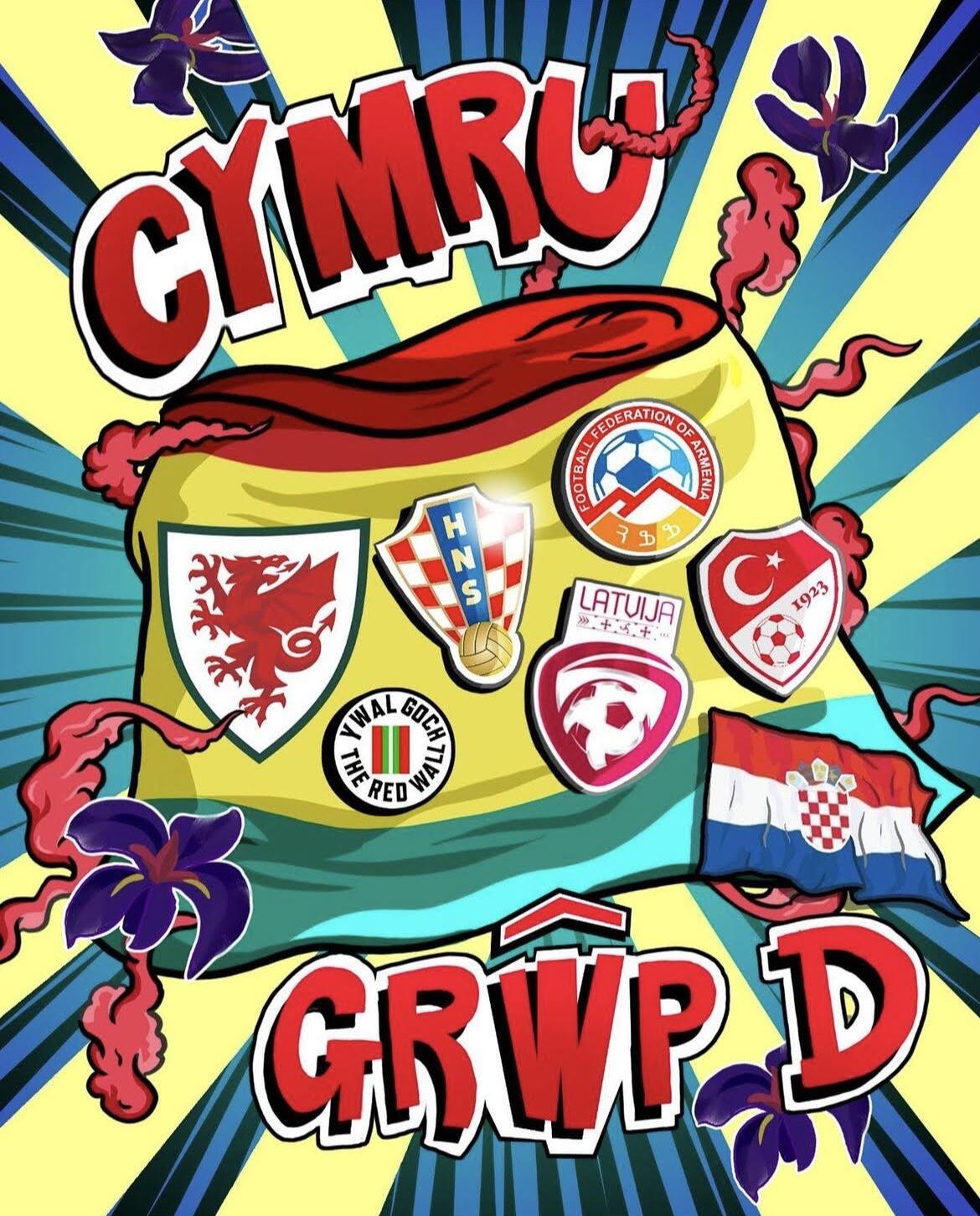
Instagram graphic announcing Cymru’s Euro 2024 qualification group posted by @fawales with the caption “Dechrau’r antur i gyrraedd #EURO2024.” Posted 25 March 2023.
EXHIBITION IMAGES
